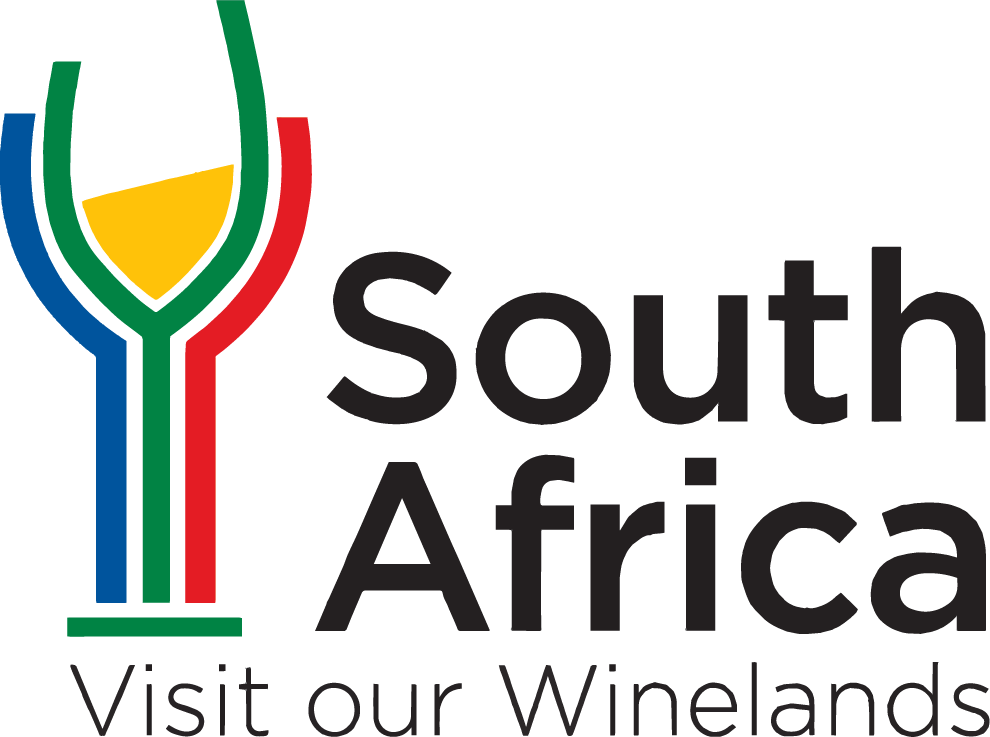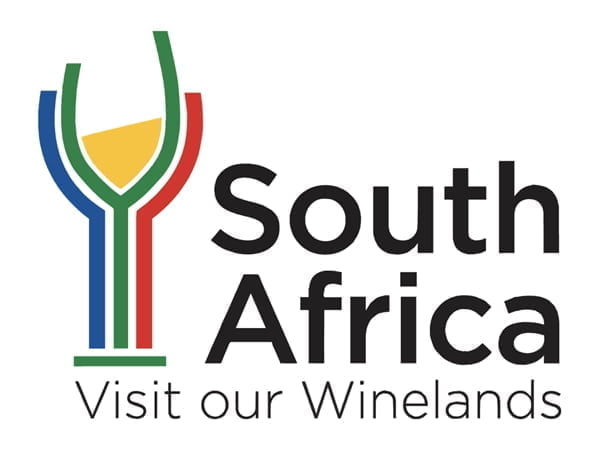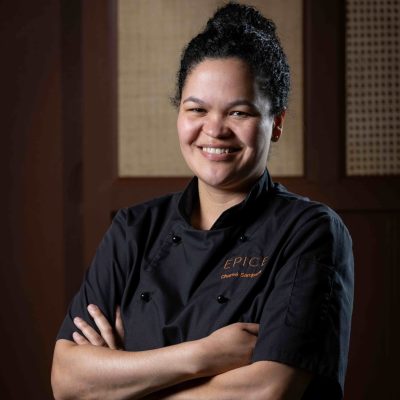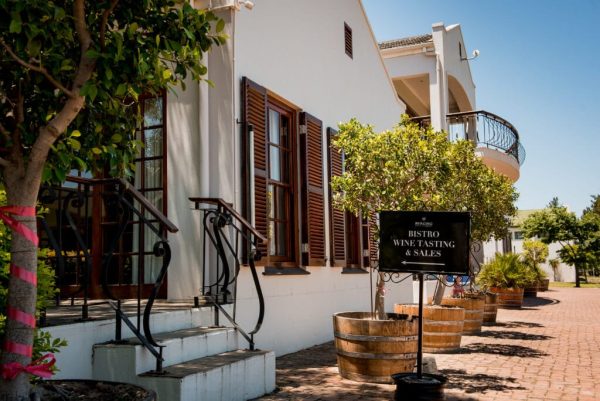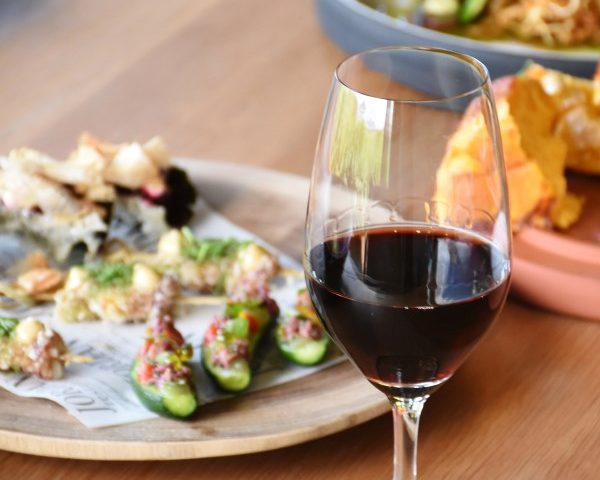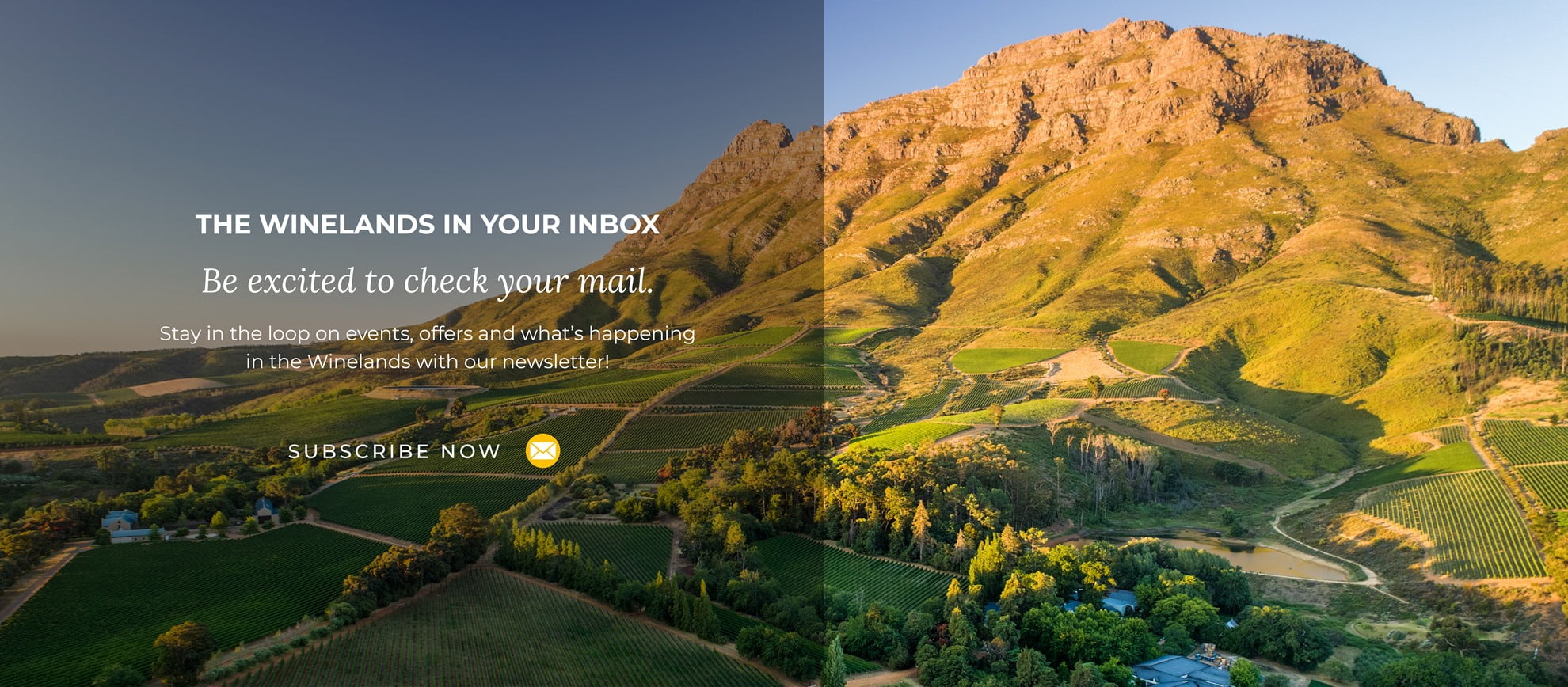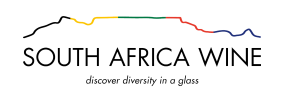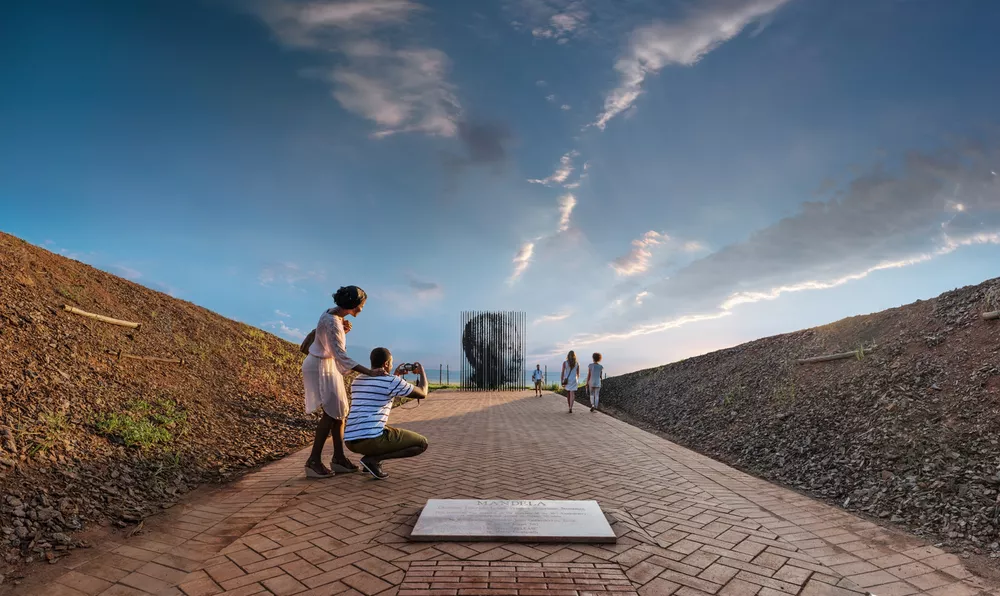
The wine scene in KwaZulu-Natal has been coming along for some years, but for the average wine-lover it has hardly been worth dedicating a trip to its exploration, until now. With three established wineries consistently producing own-brand bottled wine across a variety of styles and categories, an informal wine route has arisen stretching over 120 kilometres.
The region is regulated under the Wine of Origin scheme as comprising the districts of Central Drakensberg, which is home to Cathedral Peak Wines; and, Lions River, where Highgate and the oldest of the three, Abingdon Estate, ply their trade along the popular Midlands Meander Route.
In terms of scale, the operations are very much boutique in size, but they are the leading edge of a growing local interest in wine. The association of KwaZulu-Natal wine growers has some 25 members – farms with small vineyards or an interest in planting vines – while the province’s agricultural authorities have invested research and funding too.
As with any pioneering effort, wine grape farming in these parts has happened in fits and starts. Breaking new ground in production is one thing. Convincing the ready market of traditional wine buyers that it’s worth the premium, is another challenge.
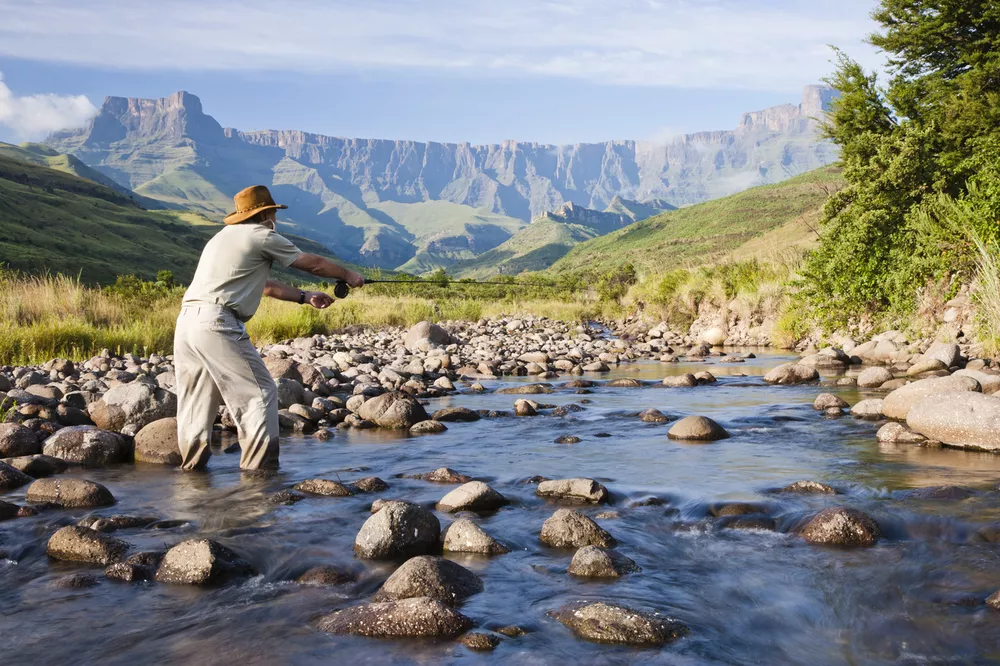
1. Highgate Wine Estate
Highgate Wine Estate has produced wine since 2009 and was the realisation of a dream for Rudi and Cindy Kassier.
A descendant of missionaries and sugar cane pioneers, Rudi was raised on a farm in the province. After studies in Germany, he was ready to return. In 1996, he and Cindy Kassier purchased Highgate. On the fallow land they deployed hydroponically grown vegetables and started supplying guesthouses and a basic road-side farmstall.
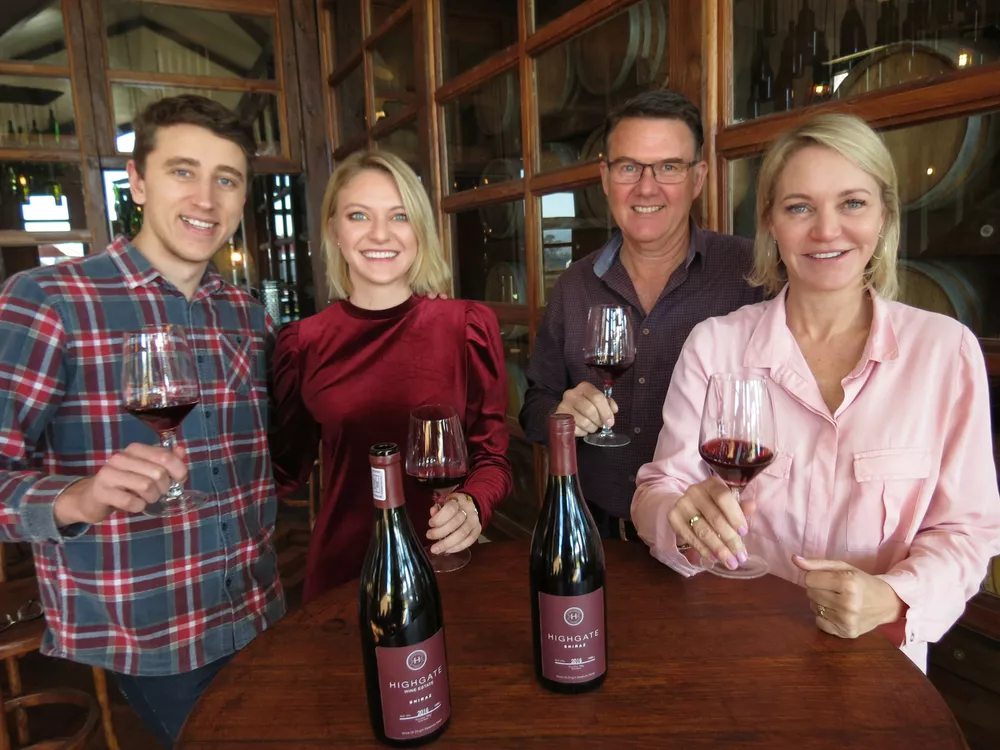
The stall led to the construction of a larger building on the site before others wanted to open shop alongside. He developed a series of small buildings which became the renowned Piggly Wiggly Centre on the Midlands Meander.
It was through interactions with the local agricultural officials that he first heard of experiments with wine grapes in the area. A lover of wine, he took the opportunity to join the research. Trial varieties including Chardonnay, Merlot, Pinotage and Shiraz were planted in 2005.
“We originally started with around 30 cultivars to see what would work. It was clear then already that Pintoage and Chardonnay would be among the easiest to manage for us,” says Rudi.
Four years later, he planted more Cabernet Sauvignon, undertook a short course in winemaking and produced 1000 bottles of his first wine. That year, he says, taught him two things: he can’t make wine and to appreciate the skill of professional viticulturists and winemakers.
“Winemakers I’ve spoken to have always been very willing and helpful, but it reached a point I realised we needed to do something differently to succeed,” says Rudi.
He’d started on the wine route as a hobby, but the more fulfilment it brought, the more he invested. Soon he realised the cottage he was using was too small and the idea for a residential wine estate – KZN’s first – was born. Importantly, it would incorporate a new wine cellar run by a trained winemaker.
The estate development comprises 58ha with 26 residential homesteads, most of which have been sold. Today, Pinotage makes up the biggest component followed by Chardonnay and Cabernet Sauvignon.
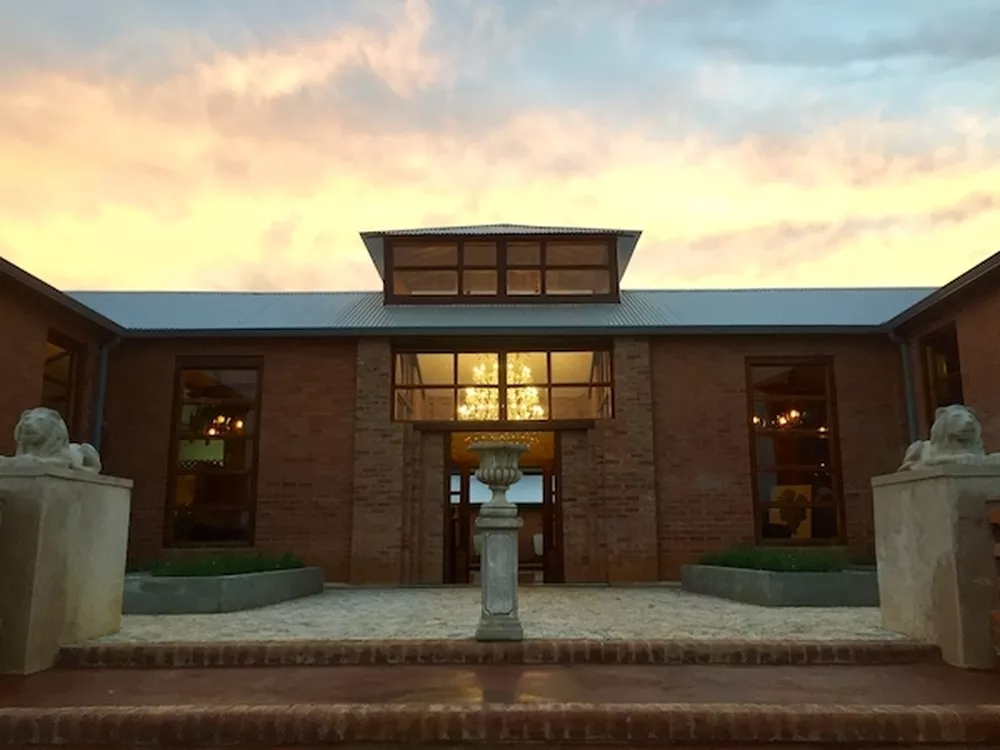
The showpiece cellar was completed recently and incorporates a fine dining restaurant called Menu, leased to the son of the owner of locally renowned La Lampara restaurant. The cellar processed its first harvest this year and Rudi is especially proud of Highgate’s The Lions River Chardonnay – the region’s first to be certified.
Heading up the winemaking now is Stellenbosch-trained winemaker Thornton Pillay, whose experience includes a harvest in Bordeaux, working at Groot Constantia and Ernie Els Wines. Originally from Durban, he was overjoyed with the opportunity to be able to find an opportunity to make wine and be close to his family.
Rudi and Cindy’s family ties were also strengthened when daughter Cathryn and partner Thomas Hershelman decided to join the business. They’d both been at Ernie Els Wines too and were excited about the new challenge.
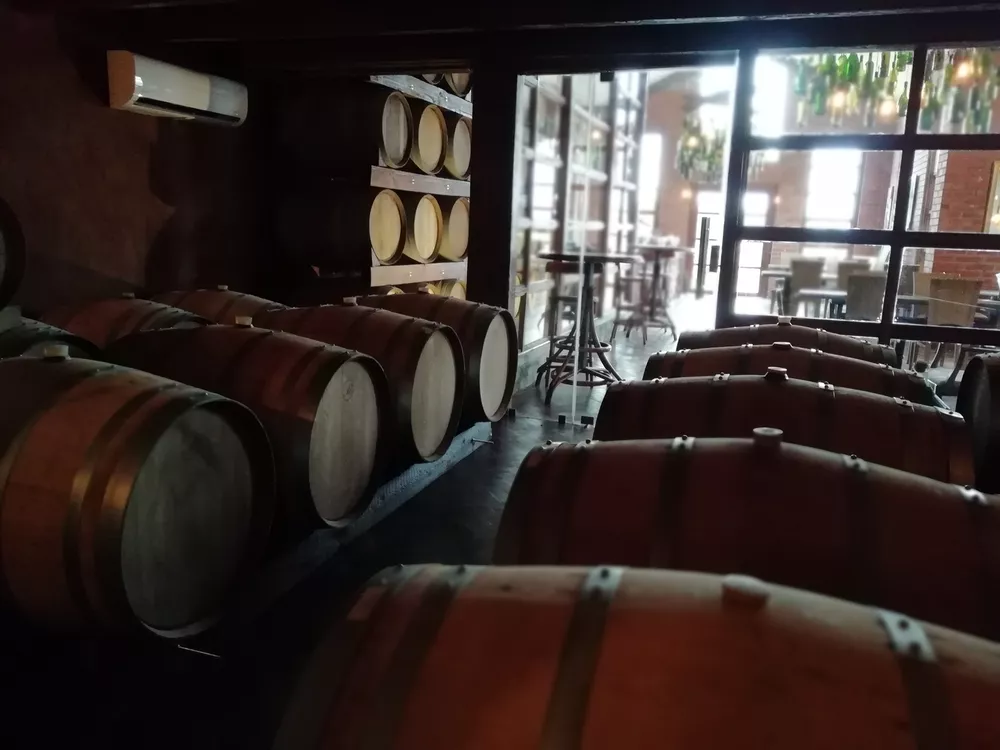
The wine cellar is their new office and rapidly becoming a landmark. Red clay bricks used in its construction and bought on tender came from the ruins of heritage buildings torn down in Pietermaritzburg and Coronation. Woodwork – from the overhead beams to parquet floor – is recycled too. One of the toilets has wood panelling from an old government elevator; another has Ardmore ceramics wallpaper.
Projects underway include new vineyards and a driveway that leads up to the front of the cellar entrance; a large, wagon wheel-shaped wetland garden; and, new labels.
On a tour through the maturation cellar he points out two small barrels – experiments with brandy, which he hopes to supplement alongside grappa to be made on site.
2. Abingdon Estate
Abingdon Estate is situated on the side of a hill down a quiet gravel road. Parts of the property not covered by vines are shrouded by trees, which is one of the reasons it’s so popular with city day-trippers eager for a lunch stopover during jaunts to the country.
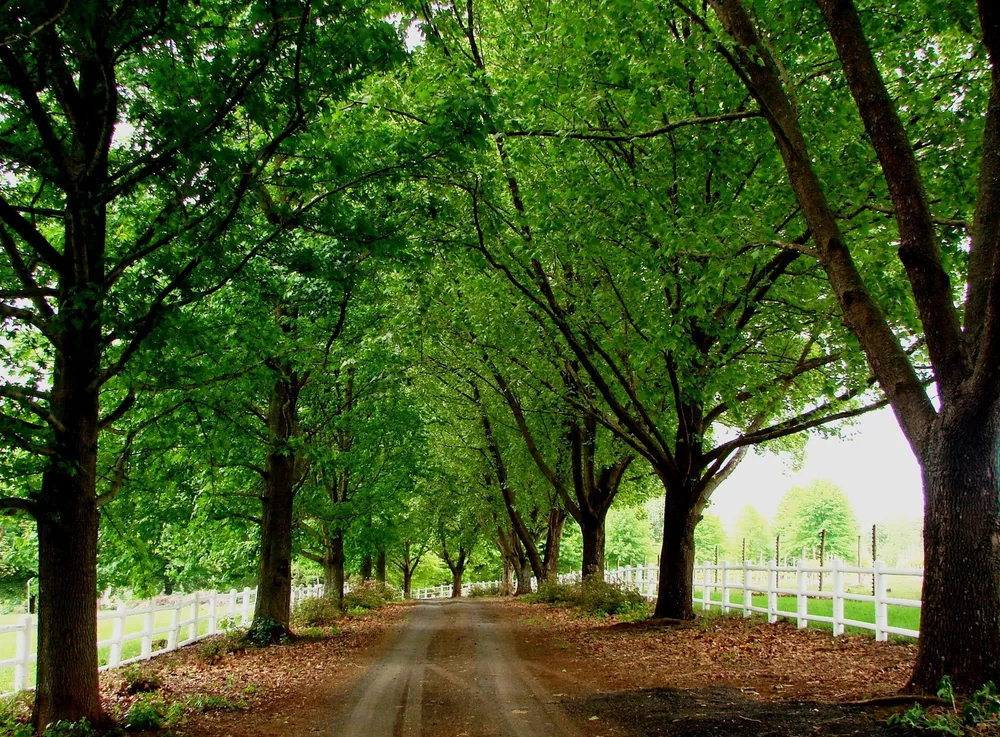
The Smorthwaite family has been making wine at Abingdon since the early 2000s. Ian and Jane bought the farm in 2000, planted its first vines four years later and opened the tasting room in 2009.
In 2013, Ian – an engineer by trade – was joined in the cellar by daughter Laurie, who’d just completed tertiary education in the UK and a qualification through the UK-based Wine and Spirit Education Trust.
I ask Laurie whether it was hard for a new “wine-hand” to slot into the three-person wine team, and work alongside her dad, whom she describes as a “notorious perfectionist”.
“I got fired three times in the first week, but we’ve learned to work well together,” she adds with a laugh.
Situated at 1 140m above sea level, the estate has 3ha under vine with a fourth dedicated to Nebbiolo that is currently being planted. Any pioneering effort relies on experimentation and this is a cornerstone of Abingdon, says Laurie. That’s how Viognier came to be on the farm and done so well for Abingdon; why Ian has tinkered with grappa-production; and, the Nebbiolo test vines, planted in 2003, perform well.
They’ve discovered that the climate means they often have more in common with regions like the Loire and Rhone regions of France than the Cape, but nothing as unique.
Total production currently runs on average at 12 500 bottles a year which comprises about eight different styles as well as Champagne-style bubblies or MCC’s. Abingdon makes a handful of single variety white wines as well as blends. It has two red wines, which will be joined by a Nebbiolo next year.
The fresh expansion to the cellar should be completed by then too.
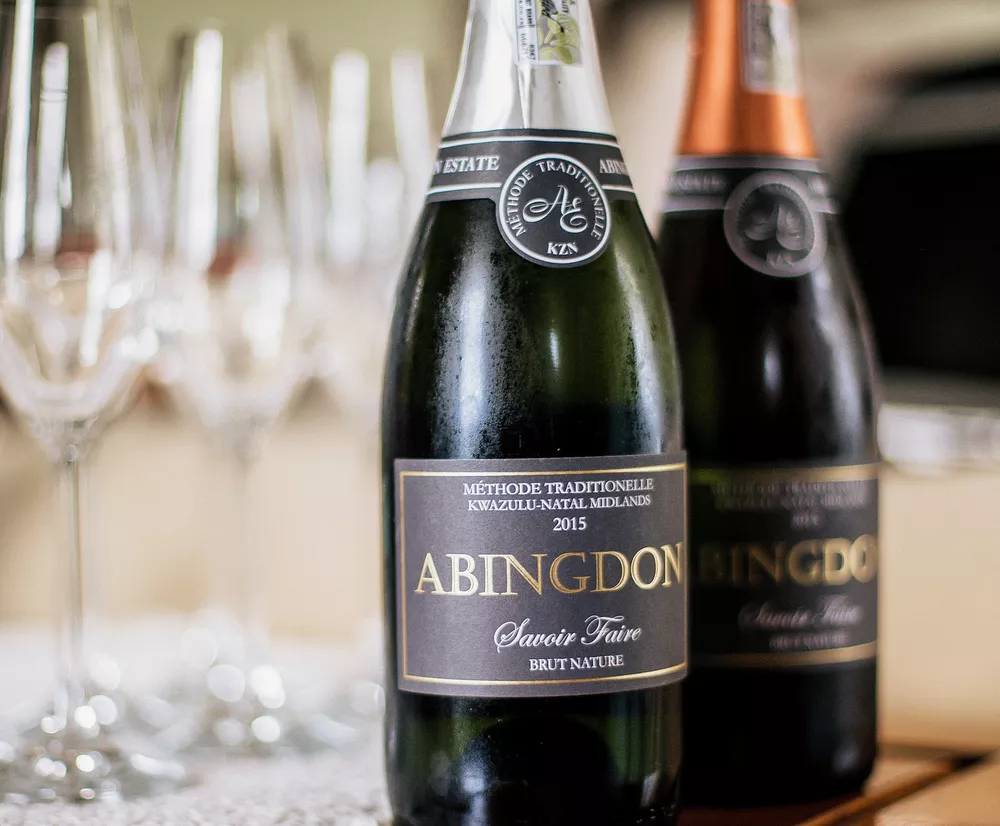
Abingdon generally doesn’t enter its wine for competitions. Its production is low and KZN is an unknown in the traditional local wine scene. Nonetheless, of only three South African Viognier wines rated by UK-based Decanter magazine in 2013, Abingdon was one of two that received a bronze medal.
“That kind of achievement just helps to get awareness that KZN can produce quality wines,” says Laurie.
Still, the tasting room with small, tapas-style restaurant is often filled. Most visitors are from Durban with seasonal increases due to Johannesburg-Durban traffic.
Laurie says they’ve seen a noticeable increase in wine interest and knowledge over the years. In a small part, she hopes she has contributed through her own WSET wine education programme.
Inevitably though, greater interest brings more customers to the Abingdon tasting room.
“You can taste everything as long as its not sold out, and that happens every year,” says Laurie. “December two years ago, we closed because we simply ran out.”
These days, wine releases are staggered except for the reds, as a way of avoiding disappointment at the tasting room. Plus, guest wines supplement its winelist. Nonetheless, the Abingdon red wines, which aren’t available in retail outlets, generally sell out within four months.
3. Cathedral Peak Estate
The road towards Cathedral Peak and the mountains near Winterton takes you through rolling hills and villages. Beyond, the Drakensberg looms. The first sight of vines arrives suddenly, over a rise where the sprawled blankets of soya bean and wheat, open onto to neat, trellised rows.
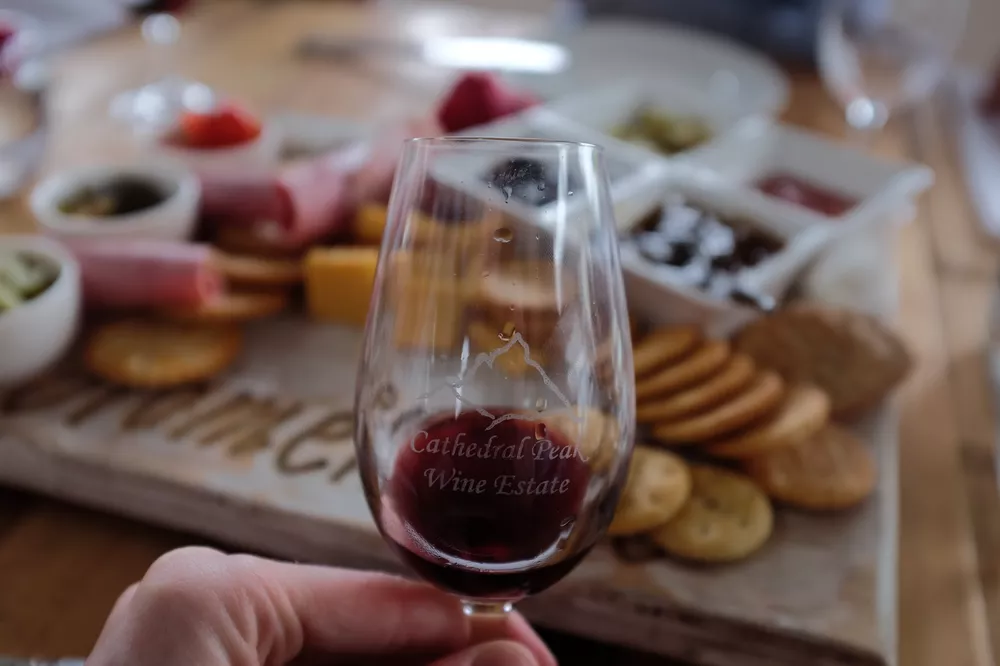
The vineyards are located on a large maize and soya bean farm and are an initiative of long-time Winterton farmer Mauritz Koster and entrepreneur Justin Vermaak. It was some ten years ago that the duo looked to diversify and decided on wine grapes. A Merlot and Pinotage vineyard was planted in 2007.
Having succeeded in nurturing the vines to production, they soon realised a professional hand was needed. Philip “Flip” Smith was winemaker at Tulbagh’s Montpellier estate when he heard about the unusual opportunity to head up the cellar in the foothills of the Drakensberg. Joined by his wife Caren who runs the hospitality side of the cellar and Carel, their youngest son who works alongside his father, Flip jumped at the opportunity to expand a career spanning close to three decades.
Having an award-winning winemaker in a region eager for recognition has certainly helped. In addition to past trophies and similar achievements at events including Michelangelo Wine Awards, the SA Young Wine Show, Swiss International Wine Awards and Veritas, Flip’s 2015 Pinotage collected the trophy for most innovative wine at the Michelangelo International Wine Awards last year.
The wine came from his first harvest at Cathedral Peak Wines – a monumental occasion for the estate and brand KZN Wine.
Soon after his arrival, the pace of development promptly sped up with a new cellar and tasting room completed in 2016. New varieties were added, and additional vineyards planted. In addition to the two original varieties have been added Cabernet Sauvignon, Sauvignon Blanc, Chenin Blanc, Grenache, Tempranillo, Shiraz and Petit Verdot. Total plantings comprise a total 30ha of which 11ha make up the heart of production.
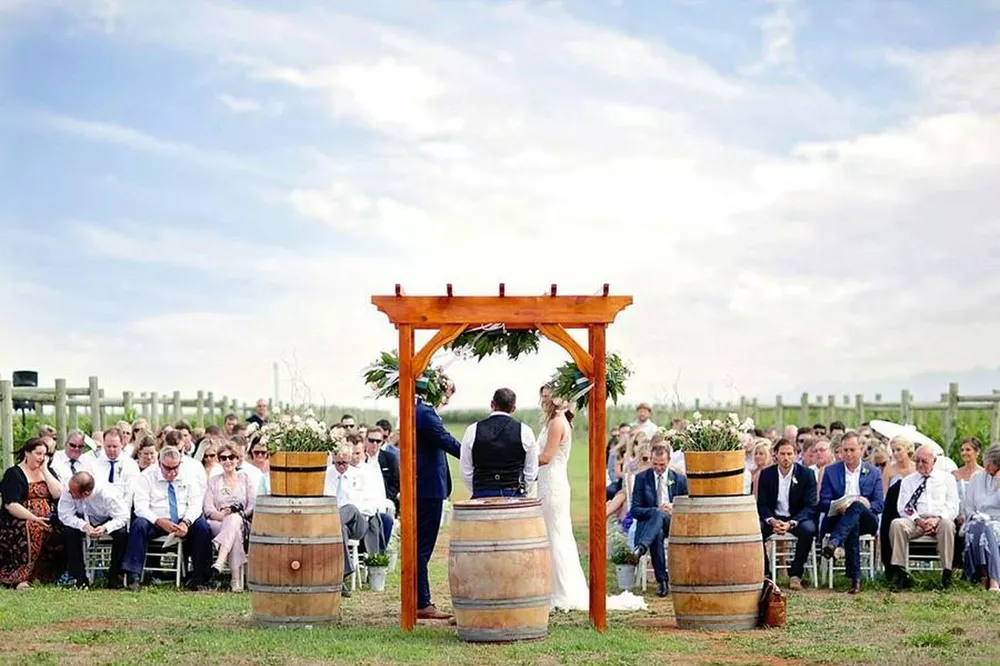
The cellar is currently being expanded even further, to be completed by December, while Flip hopes to have an own-distilled product on the shelves of the tasting room soon to supplement an extensive range of single variety Jerepigo wines.
Curiously, Flip has also overseen the planting of two varieties of table grape on the farm, which supplements the tasting room offerings. In addition to hosting functions, including weddings, there’s a small bistro that overlooks the vines, Glen Grey dam and a neighbouring private game reserve.
Visitors will soon be able to pick their own table grapes (planted to be ripe exactly during peak school holidays) to go with picnics of bread, cheese and wine.
